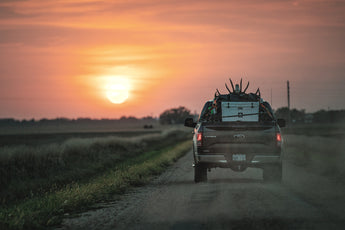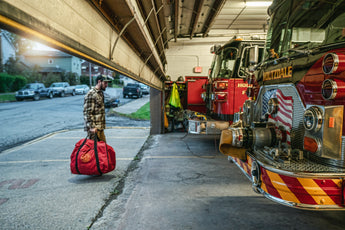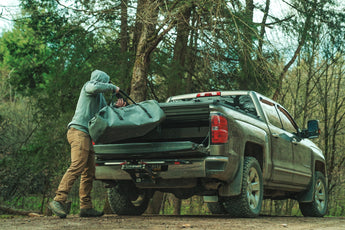First thing’s first: if you’re the proud new owner of a piece of whitetail dirt, congratulations are in order. You’ve probably worked long and hard to get to this point, so soak it all in. Your land is now your oyster and the only restraints from here on out will be determined by you and your resourcefulness. Speaking of restraint, that’s exactly where we should start.
It’s so easy to go into a new piece of ground and want to move mountains. If there’s one thing you should take away from this article, let it be this: Don’t try to boil the ocean. Managing a piece of land for hunting is a long-term play and, believe me when I say this, small bites can make big differences. Your wait for land ownership has finally come to an end and you’re in charge now, but knowing what you can change is very different from knowing what you should change, especially on day one.
So, rather than charging onto the property and leaving a you-sized hole through the wall, let’s pause and consider our end goals. The following are a few things I’ve learned that may also help you.

Formulate A Plan
The most successful people, and hunters, start with the end in mind. What would you like your land to look like in five or ten years from now? What sort of deer do you expect it to produce? If these are questions you’re able to answer, you’ll be able to back your way into a list of action items for today. This makes planning much easier - both financially and mentally. Plan your work and work your plan...the results will be well worth the effort.

Look For The Low Hanging Fruit
What can you do now to improve your conditions without upsetting the applecart? Your land probably has some good timber, food sources, and bedding areas. Don’t run in like a whirling dervish and disturb it all or you’ll have a long wait until the land is useful to you. That doesn’t mean there aren’t things you can do on day one that will help. Maybe a tweak to the entry and exit points, a new stand or food plot, some light timber work, or the introduction of new seasonal forages. These are all things you can consider to improve the quality of your land without blowing the place up. Your hunts will grow in quality, too. Think no-impact to low-impact until you have a firm grasp of what’s occurring on your land naturally - which leads me to my next point.
Be An Observer, Not An Intruder
If we’re truly after an incredible experience each time we sit in a tree, the best thing we can do is stay out. Tough, I know. The next best thing we can do is go in, but only when we’re sure that our presence isn’t felt by nearby deer. The only way to achieve this is to have a comprehensive understanding of what the deer are doing, where they’re doing it, and why they’re doing it. Sure, they’re deer, and sometimes it’s tough to tell why the hell they behave the way they do, but we need to do our best to make sense of their patterns. A proper observer approaches every sit in a stand as if on an intel-gathering mission, and that intel will be invaluable in planning our next trip out, or future changes to the land, but only if we...
Keep Impeccable Records
Quite simply, document everything you can during and after each trip onto your land. Take note of the animals you see and where you see them. How about evidence of animal movement? What’s the date and time? How about the weather? Good data will begin to form patterns and patterns become actionable intelligence for hunters. What separates us from the animals we pursue? Spreadsheets, of course. It’s not enough that we take notes, we need to organize our intelligence in a way that makes referencing it in the future easier. Every time you walk into the woods, it should be with a greater understanding than you possessed on the last trip. Eventually, you’ll know your land inside and out, and then you’ll know exactly what changes to make, and more importantly, all of the things you’ll choose to leave be.



